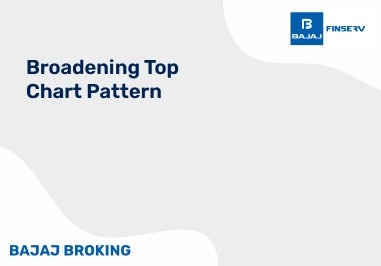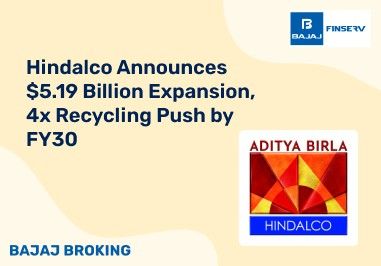BAJAJ BROKING
Retaggio Industries IPO is Open!
Open a Free Demat Account
Trade Now, Pay Later with up to 4x
Track Market Movers Instantly
The Evolution of Demat Accounts – From Paper to Digital
Demat accounts are electronic accounts that hold your securities, such as shares, bonds, mutual funds, and ETFs, in a digital format. They have revolutionised the way investors trade and invest in the Indian stock market, by eliminating the hassles of physical certificates and paperwork. In this blog, we will explore the history, benefits, and types of demat accounts, and how they have transformed the trading landscape in India.
What are Demat Accounts
| To open a demat account, you need to register with a depository, which is an organisation |
and How Do They Work?
The term demat is short for dematerialization, which refers to the process of converting physical securities into electronic form. Before the introduction of demat accounts in 1996, investors had to deal with the inconvenience of using physical copies of share certificates that had to be verified at each point of transaction. Trading was tedious and a slow process owing to the cumbersome process of managing securities.
With the introduction of demat accounts, these problems were mostly eliminated. A paperless demat account holds all your securities in an electronic format, which is easily accessible with a laptop or a smart device and internet. All you need to have is the unique login ID and password to access it. You can also monitor your portfolio and track the performance of your investments online.
How To Open a Demat Account Online?
To open a demat account, you need to register with a depository, which is an organisation that supports trading and holds all shares and securities in a dematerialized form. There are two major depositories in India: National Securities Depository Limited (NSDL) and Central Depository Services Limited (CDSL). These depositories appoint agents called depository participants (DPs), who act as intermediaries between themselves and investors. Your bank, broker, or financial institution can be a DP, with whom you can open a demat account.
When you buy or sell securities, your demat account is debited or credited accordingly. The settlement of trades is done electronically, without any physical exchange of certificates. This makes the trading process faster, cheaper, and more convenient.
What are the Benefits of Demat Accounts?
Demat accounts offer several advantages over physical securities, such as:
Safety and security:
Demat accounts eliminate the risks of theft, loss, damage, or forgery of physical certificates. They also protect you from fraudulent transactions and unauthorised transfers of your securities.
Convenience and accessibility:
Demat accounts allow you to access your securities from anywhere and anytime, with just a few clicks. You can also update your personal details, such as address, phone number, or email, online without any hassle.
Cost-effectiveness:
Demat accounts reduce the transaction costs and brokerage fees associated with physical securities. They also save you from the expenses of stamp duty, handling charges, courier fees, and storage costs.
Speed and efficiency:
Demat accounts enable faster settlement of trades and quicker transfer of securities. They also facilitate automatic credit of dividends, interest, or refunds to your account.
Flexibility and diversity:
Demat accounts allow you to hold various types of securities, such as equity, debt, mutual funds, ETFs, and government securities, in a single account. They also enable you to trade in odd lots, fractional shares, or bonus shares, which are not possible with physical securities.
What are the Types of Demat Accounts?
There are different types of demat accounts available for different categories of investors, such as:
Regular demat account:
This is the most common type of demat account, which is suitable for any Indian resident who wants to trade or invest in the stock market. You can open a regular paperless demat account with any DP of your choice, and link it with your trading account and bank account.
Repatriable demat account:
This is a type of demat account for non-resident Indians (NRIs) who want to trade or invest in the Indian stock market. A repatriable demat account allows you to transfer your funds and securities abroad, subject to certain rules and regulations. You need to have a Non-Resident External (NRE) bank account and a Portfolio Investment Scheme (PIS) permission to open a repatriable demat account.
Non-repatriable demat account:
This is another type of demat account for NRIs who want to trade or invest in the Indian stock market. A non-repatriable demat account does not allow you to transfer your funds and securities abroad, and you can only use them for domestic purposes. You need to have a Non-Resident Ordinary (NRO) bank account and a PIS permission to open a non-repatriable demat account.
Conclusion
Demat accounts have been a game-changer for the Indian stock market, as they have made trading and investing more convenient, secure, and efficient. They have also opened up new opportunities and avenues for investors to diversify their portfolio and maximise their returns. If you are interested in opening a demat account, you can contact your bank, broker, or financial institution, and get started with your trading journey.
Disclaimer: Investments in the securities market are subject to market risk, read all related documents carefully before investing.
This content is for educational purposes only. Securities quoted are exemplary and not recommendatory.
For All Disclaimers Click Here: https://bit.ly/3Tcsfuc
Share this article:
Read More Blogs
Our Secure Trading Platforms
Level up your stock market experience: Download the Bajaj Broking App for effortless investing and trading













